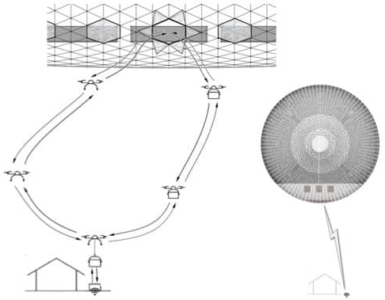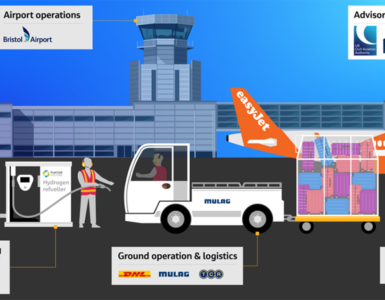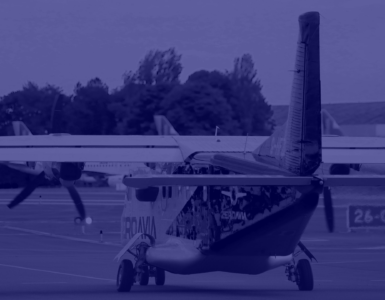Delta plots pathway to net-zero by 2050, including hydrogen and electric aircraft – edie.
Delta committed to becoming a net-zero Business in 2050 back in 2021 by joining the UN-backed Race to Zero initiative. It is now aiming to achieve verification under the Science-Based Targets initiative’s (SBTi) net-zero standard, which will require it to deliver a 90% reduction in CO2e emissions across all scopes by 2050.
This week, the business published a new roadmap detailing which mix of solutions it is planning to implement to deliver this long-term climate target and the interim goals which underpin it. Given that powering aircraft accounts for more than 95% of the airline’s overall emissions footprint, this is the key focus.
In the near-term, through to 2025, Delta’s priorities are improving the efficiency of aircraft and ground equipment, while making early-stage investments in more “revolutionary” technologies that do not yet exist and will take longer to mature. It is targeting a 1% fuel burn saving from aircraft operations, against a 2019 baseline, and aiming to firm up five strategic technology partnerships through its new ‘sustainable skies lab’.
🔥 What about we co-host a webinar? Let's educate, captivate, and convert the hydrogen economy!
Hydrogen Central is the global go-to online magazine for the hydrogen economy, we can help you host impactful webinars that become a global reference on your topic and are an evergreen source of leads. Click here to request more details
Pam Fletcher, Delta’s chief sustainability officer said:
As we reshape the fundamentals of aviation, we are as dedicated to making immediate progress as we are to investing wisely in disruptive solutions.
Fuel burn savings targets then increase to 3% by 2035 and 5% by 2050, again against a 2019 baseline. Delta believes this will result in an 80% decrease in climate-harming contrails by 2035 and their elimination by 2050. One study, from the University of Oslo, concluded that contrails accounted for more than 57% of the global aviation sector’s emissions between 2000 and 2018.
Back to the technology partnerships; Delta expects the first commercial operation of its first “revolutionary technology” resulting from a partnership to come online by 2035. It uses this term to refer to technologies which do not exist commercially today, such as purely electric or purely hydrogen-powered aircraft capable of rivalling their predecessors in terms of how many passengers they can accommodate and their range. Delta has notably already forged a partnership with Airbus focused on hydrogen aircraft.
Delta then expects 25% of its fleet to consist of “revolutionary aircraft” by 2050.
Fuel switching
For the other 75% of its fleet, Delta’s strategy outlines plans to scale the procurement of sustainable aviation fuels (SAFs).
It is aiming for at least 10% of its fuel use to be met with SAF by 2030, increasing to 35% by 2035.
At present, international regulations cap SAF blending at a 50:50 mix between SAF and traditional jet fuel. Delta, like many airlines, is foreseeing this changing in the future. It is aiming for at least 95% of its total fuel use in 2050 to be SAF.
Delta said in a statement: “Unfortunately, there isn’t enough SAF today to fuel an airline Delta’s size for a single day. Delta is working to build demand, attract investment and encourage incentives to scale the market so all airlines can access more sustainable fuels.”
SAF is an extremely controversial topic. Research published by the Royal Society earlier this month questioned whether SAF production will scale up as rapidly as many policymakers and businesses are hoping. It also warned that, if production does scale, there will likely be many fuels with poor life-cycle impacts on the environment in the mix.
Poorly-sources biofuels have been linked to issues such as deforestation and soil degradation linked to monocropping, for example.
Nonetheless, airlines seem to favour SAF for the fact that it exists commercially today – albeit in small quantities – and that it is a ‘drop-in’ solution requiring no changes in infrastructure or aircraft when used in blends. Airlines in the UK, in the main, seem to be favouring SAF to an even greater extent than Delta, with many having no time-bound plans for commercialising hydrogen or electric alternatives – and with this approach largely reflected in the Jet-Zero Strategy.
READ the latest news shaping the hydrogen market at Hydrogen Central
Delta plots pathway to net-zero by 2050, including hydrogen and electric aircraft, March 9, 2023








